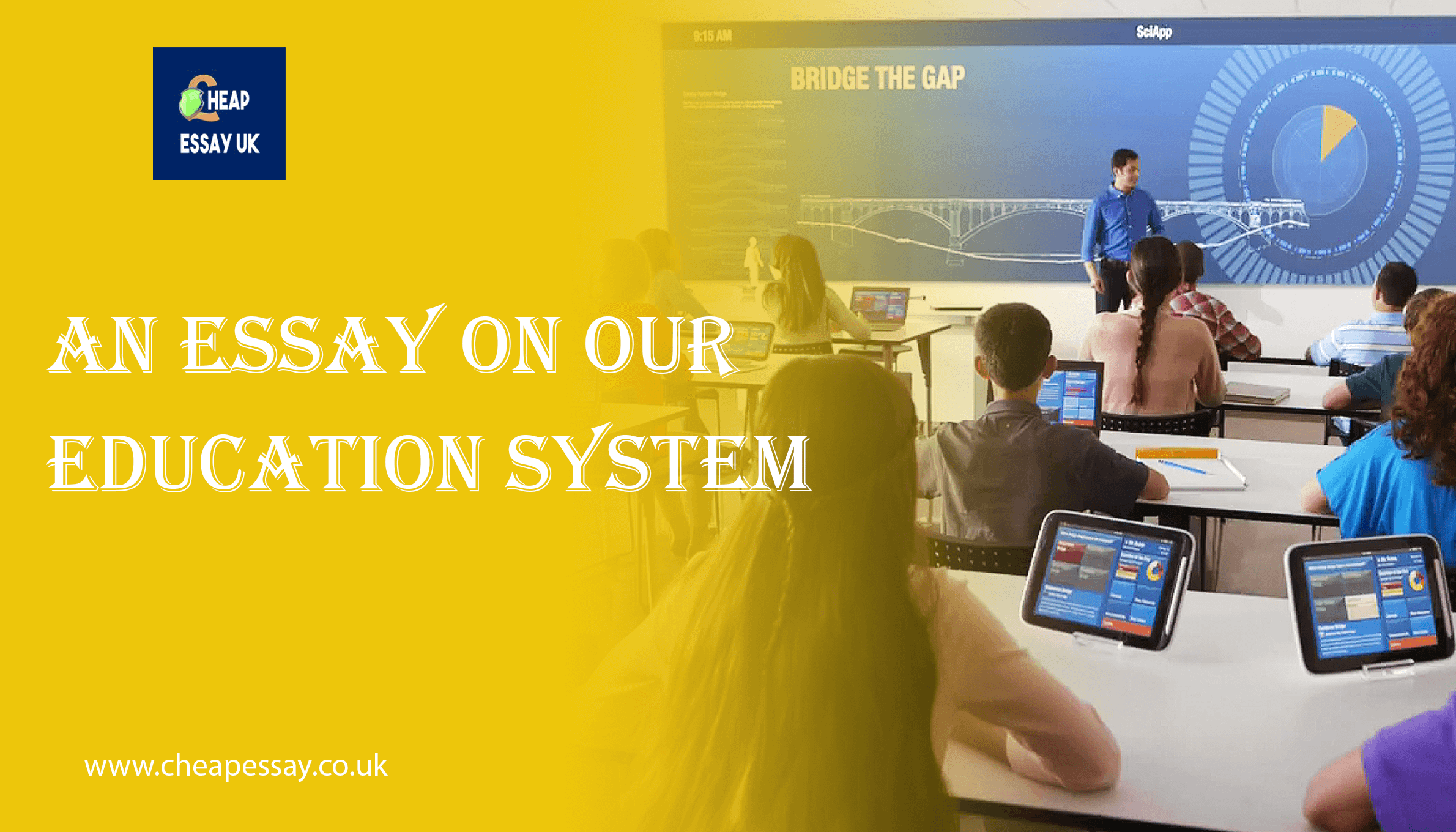Education is vital in molding people’s perspectives and opportunities for the future, constituting the basis of society. However, like any structure, our educational framework changes over time to adapt to the requirements of the contemporary world. Examining the merits, flaws, and potential enhancements to today’s education system is crucial as we analyze its intricacies. This essay aims to thoroughly investigate the existing educational paradigm, underlining its benefits and stressing its deficiencies.
Historical Context
We must first examine education’s past in order to understand its current state. During the Industrial Revolution, the foundations for contemporary education were laid in many areas. Over time, education grew to encompass more topics and ways of teaching. Looking at the origins of our education system gives insight into how it has developed into its current form.
Strengths of Our Education System
Accessibility and Inclusivity
One of the main achievements of our school system is how open and accessible it is to all students. Public schools accept every child, no matter their family’s financial circumstances. In fact, this inclusion is crucial for advancing fairness and ensuring each kid has an opportunity to prosper. Offerings like special education essay and free or reduced-price meals demonstrate a commitment to satisfying the needs of a diverse body of pupils.
Extracurricular Opportunities
The co-curricular activities train the students for their future academic life. In fact the students that engage in quiz shows, theater, music, clubs, and sports develop their confidence. This boost in confidence assists them develop their abilities, explore their passions, and learn important life skills. They become experts in education essay writing.
Technological Integration
Technology has changed the way kids learn in classrooms. Interactive whiteboards, online resources, and instructional software all provide dynamic learning experiences. Moreover, remote learning is now feasible because of technological integration, ensuring that education will continue even in the event of emergencies like the COVID-19 pandemic.
Challenges Facing Our Education System
Inequality and Funding Disparities
However, the educational system is not without its issues, particularly with regard to funding and inequality. Because wealthier schools often receive more funding and resources than those in low-income districts, there are gaps in educational opportunities. Moreover, this discrepancy impacts everything, including the availability of qualified teachers and the quality of resources and facilities.
Standardized Testing Pressure
Standardized testing emphasis has become a divisive topic. Students can focus narrowly on test preparation at the expense of broader learning due to exam pressure, even though exams are intended to assess student progress and hold institutions accountable. Furthermore, standardized testing may not fully represent a student’s potential or ability.
Teacher Shortages and Retention
High rates of teacher turnover and shortages present serious problems. Teacher burnout, low pay, and a lack of support are major reasons why many quit the field. In fact, this churn hampers the learning process for both students and the surviving staff members. Taking care of these problems is essential to having a reliable and productive staff in education.
Curriculum Relevance
It is becoming more and more important to make sure that the curriculum stays current as society and the labor market change. The employment of today’s kids may include occupations that may not even exist yet due to the quick speed of technology innovation. As a result, in order to provide pupils abilities like flexibility, critical thinking, and digital literacy, education must change. It is only relevant curriculum that can help students learn education essay writing.
Pathways to Improvement
Equitable Funding and Resource Allocation
We must develop a more fair education system by addressing financing discrepancies. Legislators need to make sure that every school has enough funding to deliver a top-notch education. In fact, this can entail adjusting funding formulae to take underfunded areas’ and schools’ needs into consideration.
Balanced Assessment Methods
The creation of more equitable evaluation techniques is necessary to get past an over-reliance on standardized testing. Formative tests, project-based learning evaluations, and other metrics that evaluate a wider range of student abilities and knowledge should be included in these. Moreover, this strategy would lessen test-related anxiety and encourage a more thorough comprehension of students’ learning.
Support for Teachers
Enhancing retention and efficacy requires funding for professional development and support for teachers. Providing possibilities for professional progression, mentorship programs, and competitive compensation can enhance the appeal and sustainability of the teaching profession. In fact, lowering administrative demands and offering mental health supports can help lessen teacher burnout.
Curriculum Modernization
It is essential to update the curriculum to meet social requirements both now and in the future. This entails including environmental studies, financial literacy, and technological education. Prioritizing teamwork, creativity, and critical thinking may help pupils better prepare for the difficulties of the modern world. Collaborations between businesses and universities can also assist in matching academic accomplishments to labor market necessities.
Community alliances may provide students more possibilities and resources, such mentoring programs and internships. Moving ahead, it is crucial that we remain dedicated to fostering innovation and ongoing enhancement in education. Through these efforts, we can equip the next generation with the understanding, abilities, and principles required to prosper in an ever-changing world. Because our educational framework will determine the trajectory of our society, it is our shared obligation to ensure it is robust and flexible. By doing so, we can empower youth to excel in the future while upholding the values that matter most.
